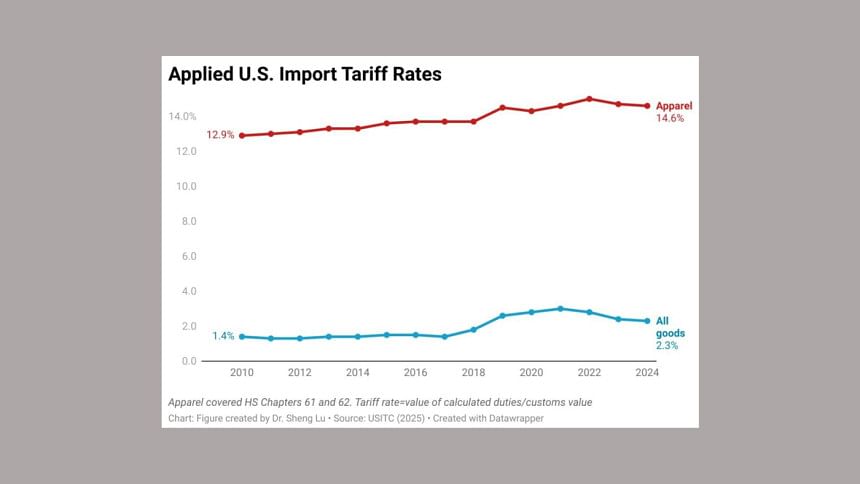New US tariffs harmful to consumers, businesses: US fashion industry association

The United States Fashion Industry Association (USFIA) has expressed deep disappointment over the Trump Administration's decision to impose new tariffs on all imports, warning of serious consequences for American fashion brands, retailers, and families.
In a statement, the USFIA said the fashion industry—highly reliant on global supply chains—will be disproportionately impacted by the sweeping tariff measures.
The USFIA represents brands, retailers, importers, and wholesalers based in the United States and doing business globally. Founded in 1989, USFIA works to eliminate tariff and non-tariff barriers that impede the fashion industry's ability to trade freely and create jobs in the United States.
"A single garment may pass through multiple countries before reaching US consumers, illustrating how deeply integrated global supply chains are," the association said.
According to the USFIA website, the Trump Administration has imposed seven new tariff actions this year, resulting in a projected $20 billion increase in tariffs on apparel imports, with an average new tariff rate of 22 percent.
Major trading partners have been labelled as "worst offenders" and targeted with steep tariffs, raising concerns for both importers and exporters.
The average tariff on apparel stood at 14.6 percent in 2024, compared to just 5 percent for steel, the USFIA noted.
"Tariffs may address unfair trade practices, but in this case, they unfairly burden American families—particularly lower-income households who spend more of their income on clothing and footwear," according to the statement.
The group also highlighted gender-based disparities, pointing to a "pink tax" that sees women's and unisex apparel taxed higher than men's for the same items.
The USFIA cited a US International Trade Commission finding that American households paid $2.77 billion more in tariffs on women's clothing compared to men's in recent years.
Despite the textile and apparel industry paying over $15.6 billion in tariffs in 2024 alone, domestic production remains stagnant, with only 3 percent of apparel made in the US.
The association urged the administration to reconsider, saying American consumers and companies would be better served by reducing costs and supporting open trade.

 For all latest news, follow The Daily Star's Google News channel.
For all latest news, follow The Daily Star's Google News channel. 



Comments